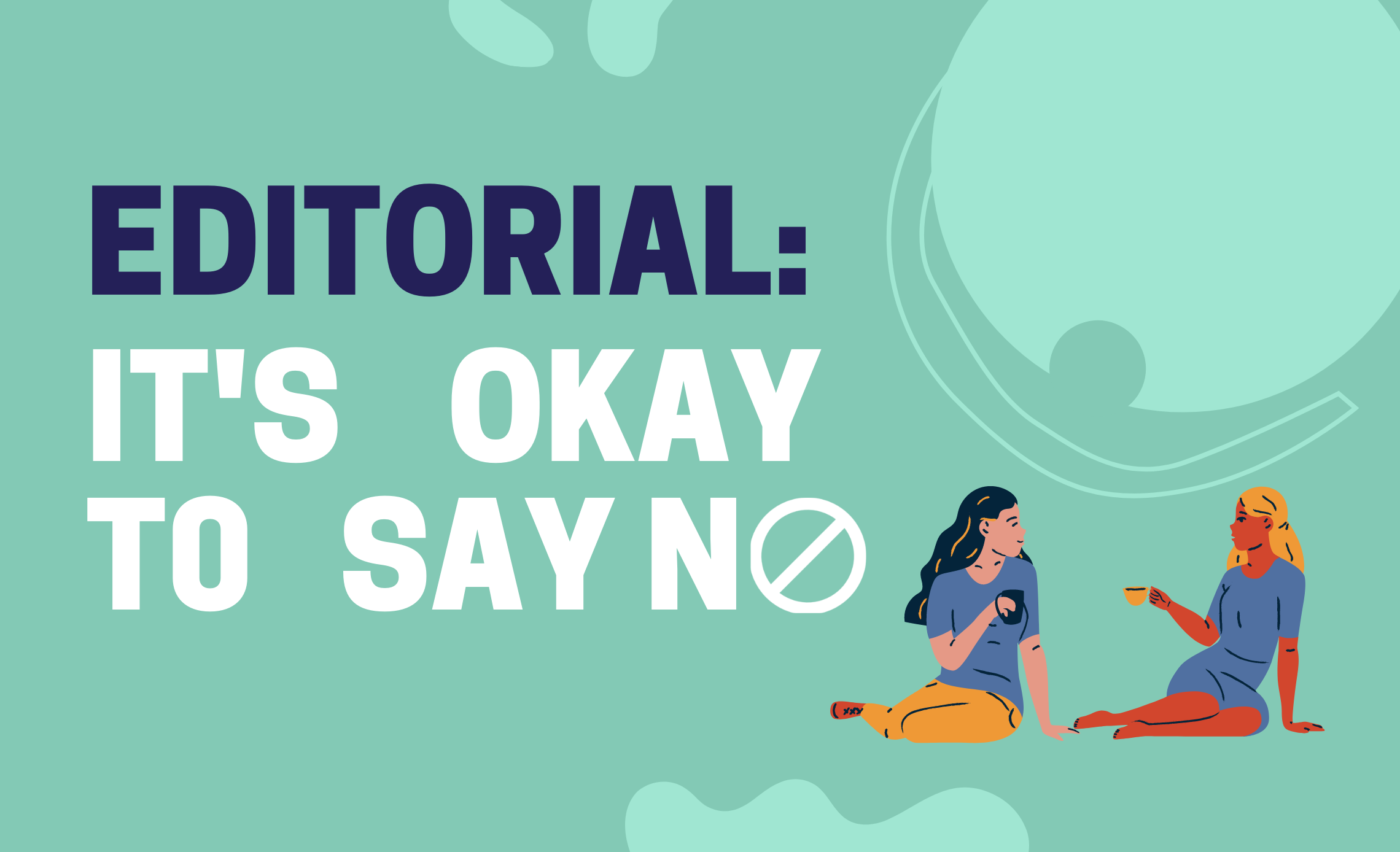The Opinion of the Smoke Signal Editorial Board
“You wanna grab some boba?” All your friends are going to Tpumps after a long day at school, but you really want to stay at home to take some time for yourself. At the same time, you don’t want to reject your friends, who’ve been asking you to hang out for the past couple weeks. So, you end up going despite your weariness.
We’ve all been in situations where we feel uncomfortable saying no to friends, family, or peers. Students can feel obligated to share their homework assignments despite not wanting to participate in academic dishonesty for fear of being labelled as “uptight.” Club officers sometimes commit to major responsibilities that they can’t fulfill because they feel they’re the only ones who can do the job. We may feel pressured at social gatherings to try drugs and alcohol when we can’t bring ourselves to turn down our friends’ offers.
Saying yes may seem like an easy escape route from the temporary discomfort of rejecting someone else. However, we end up hurting both ourselves and those around us in the long run. Not expressing our true emotions sparks a cycle of poor communication: the more we misrepresent our boundaries, the harder it gets for others to respect our limits. This can hurt others too — dishonestly appeasing someone can result in a one-sided relationship where they are overly emotionally invested in you. However, not only are we misleading others, we’re also infringing on our own self-image.
When we pressure ourselves to say yes, we sacrifice our well-being to cater to others. For example, we may find ourselves losing sleep to talk to a friend late into the night about a personal issue. To rationalize this behavior, we often tell ourselves, “It’s okay that I’m uncomfortable because I’m helping them,” subsequently reinforcing a subconscious self-belief that our boundaries aren’t as important as other people’s happiness. It’s hard enough as teenagers to maintain a sense of self as we grapple with our identities, but it’s even harder when we’re constantly overstepping the boundaries we set for ourselves.
It’s important to remember that relationships aren’t about unconditional accommodation but rather mutual respect and understanding of each others’ boundaries. Shying away from saying no for fear of conflict creates unhealthy tension with pent up resentment over unclear limits. Whatever the relationship may be, emotional honesty between both parties is the key to longevity. No one besides ourselves truly understands our boundaries, so we must be the ones to elucidate them for others. If you’re worried about hurting others’ feelings, remember that your welfare should be your first priority.
Developing the courage to say no begins with practicing in low-stakes situations. A persistent door-to-door salesman is offering repair services? “I’m not interested.” A neighbor asks you to spend a weekend helping them move when you don’t have the time? “Sorry, I can’t help you out.” When you’re practicing, be assertive as you set your boundaries. Don’t bank on the hope that your reluctant tone or prolonged hesitation will be enough to send the hint — instead, be direct and explicit. These small steps will enable us to build the confidence to say no to those we are more emotionally attached to.
So, the next time you’re invited to go out to boba and you aren’t really feeling it, challenge yourself by embracing the discomfort. Just say no.
Cover image by Opinion Editor Aria Lakhmani


Be the first to comment on "Editorial: It’s Okay to Say No"